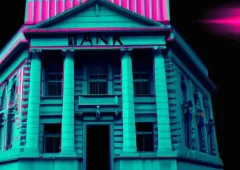Regulation, Innovation, and Ambition – Dubai’s Formula For a Digital-First Financial Era
14.10.2025 8:30 2 min. read Alexander Zdravkov
Dubai is rapidly reshaping its financial identity, positioning itself at the intersection of traditional markets and the digital economy.
Sheikh Mohammed bin Rashid Al Maktoum described this transformation as a turning point – the creation of a new economic pillar built on innovation and technology.
Central to this shift is the Virtual Assets Regulatory Authority (VARA), founded in 2022 as the world’s first dedicated crypto regulator. In just a few years, VARA has brought order to a once-unregulated space, licensing over 40 firms and registering more than 600 service providers. This framework has made Dubai a rare example of a jurisdiction where digital finance operates under clear and enforceable rules – something most global markets are still struggling to achieve.
But regulation is only part of the story. Dubai’s broader financial roadmap, outlined in its new three-year Financial Sector Strategy, aims to double the sector’s GDP contribution while opening doors for startups and family-owned businesses to go public. The plan also prioritizes capital market growth, fintech innovation, and deeper integration of blockchain-based assets into the economy.
The results are already visible. The Dubai Financial Market has gained nearly 15% this year – its strongest run in over a decade – and total market capitalization has exceeded AED 1 trillion. Major listings such as ALEC Holding’s IPO and DU’s share sale have drawn strong investor interest, while digital asset funds in the city now manage close to AED 10 billion, highlighting growing institutional appetite for regulated crypto exposure.
Globally, Dubai is being recognized for its progress. Ranked 11th in the Global Financial Centers Index and leading in projected growth potential, the city is increasingly viewed as a blueprint for the future of finance – one that merges innovation with accountability.
As Sheikh Maktoum bin Mohammed put it, Dubai isn’t just expanding its financial footprint; it’s laying the foundation for a new kind of economy – one that sees digital value as a natural extension of global commerce.
-
1
Bitget Unveils Unified Multi-Chain Accounts and AI Signals in Web3 Push
25.09.2025 15:00 2 min. read -
2
CME Group to Launch 24/7 Crypto Futures Trading by 2026
02.10.2025 18:19 2 min. read -
3
Binance Unveils Crypto Service for Banks and Brokers
30.09.2025 11:43 2 min. read -
4
Crypto Adoption Accelerates: Pay in Bitcoin at 650,000 Stores Across South Africa
11.10.2025 11:00 2 min. read -
5
Hong Kong Firm Eyes Digital Future With $11 Million Crypto Push
06.10.2025 17:00 2 min. read
BlackRock’s Big Bet on Stablecoins Could Reshape Finance Forever
BlackRock is updating its money market fund to align with the GENIUS Act, aiming to support stablecoin issuers holding high-quality, liquid reserves under the new U.S. framework.
Sony Eyes Regulated Entry Into the Digital Dollar Market
Sony Bank has applied for a U.S. national banking license from the Office of the Comptroller of the Currency (OCC), aiming to issue a dollar-backed stablecoin and offer digital asset services through its subsidiary, Connectia Trust.
Ripple Brings Regulated Crypto Custody to South Africa’s Banking Sector
Absa Bank has become the first major African institution to adopt Ripple’s digital asset custody services, signaling a rising appetite for tokenized assets on the continent.
Citi Prepares Institutional Crypto Custody Launch
Citigroup is quietly preparing to enter the digital asset custody business, signaling how far traditional banking has come in embracing cryptocurrency.
-
1
Bitget Unveils Unified Multi-Chain Accounts and AI Signals in Web3 Push
25.09.2025 15:00 2 min. read -
2
CME Group to Launch 24/7 Crypto Futures Trading by 2026
02.10.2025 18:19 2 min. read -
3
Binance Unveils Crypto Service for Banks and Brokers
30.09.2025 11:43 2 min. read -
4
Crypto Adoption Accelerates: Pay in Bitcoin at 650,000 Stores Across South Africa
11.10.2025 11:00 2 min. read -
5
Hong Kong Firm Eyes Digital Future With $11 Million Crypto Push
06.10.2025 17:00 2 min. read
In 2024, U.S. regulatory bodies have managed to secure more than $19 billion in settlements from cryptocurrency firms, representing a significant portion of all settlements recorded to date.
Anthony Scaramucci, founder of Skybridge Capital, believes that the next crypto bull market could be sparked by clear regulatory guidelines.
In September 2024, Binance experienced a significant drop in trading volumes, marking its lowest point since late 2023.
Following Donald Trump's re-election, a16z crypto is reassuring founders that the evolving regulatory landscape will bring greater clarity to the sector.
Former Binance CEO Changpen Zhao is nearing the end of his four-month prison sentence, with his release scheduled for September 29, according to the US Federal Bureau of Prisons.
A prominent crypto expert has raised concerns about the spread of distorted narratives in the market, driven more by sensationalism than factual, on-chain evidence.
It is not unusual to witness a single token go from obscurity to unheard-of stardom in the constantly evolving world of cryptocurrencies.
Shiba Inu (SHIB) once rode the waves of meme, turning ordinary enthusiasts into millionaires overnight.
Sui and Cardano have lost their strong upward momentum, which means their prices are not rising as fast as before.
XRP Price Prediction has become a hot topic in recent months, with XRP surging 500% from $0.50 to $3.18.
For years, XRP and Stellar (XLM) have stood as go-to tokens for cross-border transactions cutting fees and processing times.
Changpeng Zhao, the former CEO of Binance, reportedly supported crypto projects linked to the Trump family while privately seeking a presidential pardon, according to a July 11 report by Bloomberg News.
A recent report by blockchain analytics firm Chainalysis highlights the growing role of cryptocurrency in funding online disinformation campaigns targeting elections.
As Donald Trump claims victory in the 2024 U.S. Presidential Election, the Republican Party is on track to secure substantial gains in Congress.
Geoff Kendrick, Global Head of Digital Assets Research at Standard Chartered, predicts that the global cryptocurrency market could soar to $10 trillion by 2026 if the Republican Party secures control of both chambers of the US Congress.
Bitcoin is gaining momentum, recently hitting a record high of around $110,000 and reigniting investor optimism.
Recent data from CryptoQuant analyst Causeconomy indicates a 19.34% drop in on-chain transactions under $10,000, suggesting a decrease in retail investor participation.
Bitcoin is approaching its all-time high, yet analysts indicate that retail investor engagement remains surprisingly low.
Retail investors are increasingly favoring XRP over Bitcoin, as Glassnode data shows a dramatic 490% increase in XRP’s daily active addresses, compared to just 10% for Bitcoin since the 2022 market low.
Retail investors are making bold moves amid the massive market downturn sparked by new tariffs introduced by President Donald Trump.


